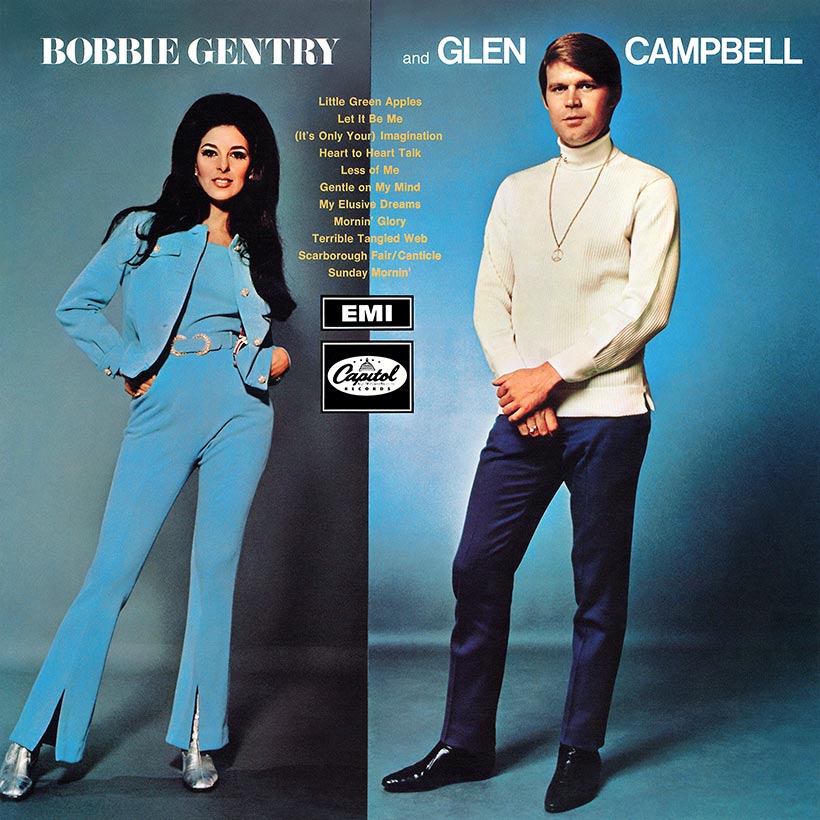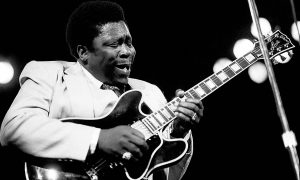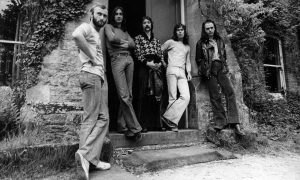Barely a year after her 1967 critical and commercial smash, “Ode To Billie Joe,” Bobbie Gentry was not in Capitol Records’ good books. Her second album, the woozy and surreal The Delta Sweete, featured erotically-charged songs about band rehearsals (“Okolona River Bottom Band”) and difficult, confusing songs with overlapping voices (“Reunion”). It had bombed. Bobbie was displaying a worrying tendency towards not caring about commercial success, and so Capitol sought to team their wayward charge with one of their fastest-rising stars for the collaboration album Bobbie Gentry And Glen Campbell.
Listen to Bobby Gentry And Glen Campbell right now.
Like Gentry, Campbell had come from rural poverty; he had left home as a teen to join his uncle’s band, eventually pitching up in LA to work as a highly versatile session guitarist. He had also toured with The Beach Boys in the mid-60s, subbing for Brian Wilson. More importantly, from Capitol’s point of view, Campbell was hot: “Gentle On My Mind” and “By The Time I Get To Phoenix” were killer slices of country melancholia and they had both hit big.
Campbell and Gentry had known one another for a few years, before either was famous. The pair had already co-headlined a tour, and by its end they were regularly performing duets onstage (to the audience’s delight); both were open to Capitol’s idea of a recorded collaboration. Gentry was “loose as a goose,” Campbell has said. “She wasn’t uptight. She was very easy to work with.” This effortless familiarity became the defining feature of Bobbie Gentry And Glen Campbell, released on September 16, 1968.
A mix of covers and originals, the album solidified Campbell’s appeal and steered Gentry away from her more outré impulses. Campbell contributed two classy songs, “Less Of Me” and “(It’s Only Your) Imagination,” while Gentry penned one. “Mornin’ Glory,” which Gentry had originally recorded on The Delta Sweete, lost its former paranoid edge and, instead, became a paean to intimacy with Campbell. It’s a mark of the versatility of Gentry’s songwriting that both versions are inspired.
“Little Green Apples,” “Let It Be Me,” “Heart To Heart Talk”: all are easy-listening silk, light on the ear and good for the mood. However, the finest cover on the album is the sunshine-pop classic “Sunday Mornin’,” originally written by Margo Guryan and made famous by Spanky And Our Gang. On one level, it’s a gently optimistic hum. Gentry has never sounded sweeter, almost anticipating the soft vocals of Karen Carpenter, while Campbell employs his most honeyed harmonies as they relax quietly together over coffee.
However, the gentility of “Sunday Mornin’” has an edge to it. There’s a definite fixed-grin feel by the end, with the repeated “Everything’s alright,” only heightened by Campbell asking Gentry, “Bob, did you say, ‘Everything’s alright?’” as the song fades. In 1968 America, with the ongoing Vietnam war and the assassinations of Martin Luther King and Robert Kennedy, perhaps Campbell and Gentry were disorientated like the rest of the population, far from convinced that everything was alright. Underlining this is the decision to close the album with their version of “Scarborough Fair/Canticle”: one of Paul Simon’s subtlest anti-war statements.
Bobbie Gentry And Glen Campbell was a No.1 country album and achieved the success that Capitol had wanted. The pair followed it up with another hit together, a version of The Everly Brothers’ “All I Have To Do Is Dream,” but a second duets album was shelved. For Campbell, Bobbie Gentry And Glen Campbell was a brief stop-off on a career ticking upwards; “Wichita Lineman,” released shortly afterwards, soon eclipsed it. As for Gentry, the album’s legacy was trickier. She found it harder to pull herself completely from its easy-listening quicksand, and none of her subsequent albums fully revisited The Delta Sweete’s ambition.
Bobbie Gentry And Glen Campbell is frequently overlooked, but it’s unfair to dismiss the album as a water-treading exercise. It contains some of the smoothest vocal performances ever laid down by either Gentry or Campbell and, knowing the character of each, perhaps a hint of rebellion spiking its saccharine.
The career-spanning Bobbie Gentry 8CD box set, The Girl From Chickasaw County, can be bought here.




